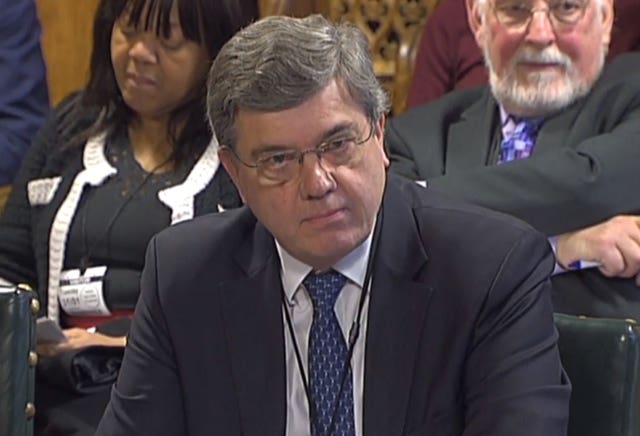Thousands of prisoners are being released without proper checks on what danger they pose to the public, a watchdog has suggested.
Chief inspector of prisons Peter Clarke hit out at the “poor response” to the problem, which he has repeatedly raised and described as a “systemic issue”.
Publishing his annual report for 2018/19 Mr Clarke said: “Thousands of prisoners are going through the system without proper assessment of their risk before release.
“I have to say that the response from the prisons service to something which is an organisational weakness has been poor.”

The assessments should be regularly updated during an inmate’s time behind bars but sometimes there was no document at all or the paperwork was out of date, Mr Clarke added.
The report also warned too many prisons continued to be plagued by violence, drugs and “appalling living conditions”.
Mr Clarke criticised the response to the “deluge of drugs flowing into many prisons” which led to violence, bullying and debt, as often “slow” and unsophisticated.
He said there was a “reluctance” to invest in available technology to detect drugs which was a “great shame” given the “destructive impact” they had.
Too many inmates were still being held in unsafe conditions with levels of violence increasing in more than half the prisons inspected, Mr Clarke said.
Out of 28 prisons inspected, 22 were found to be unsafe.
Levels of violence also remained high at young offender institutions and secure training centres with bullying a “constant concern”, the watchdog said.
Mr Clarke also warned suicides in prisons increased by nearly one fifth on the previous year and levels of self-harm were “disturbingly high”, increasing in two thirds of the adult male prisons inspected.

While there was a 25% increase in reported incidents of self-harm in 2018, up to 45, 310 from 36, 347 in 2017.
Mr Clarke would not go as far as to call for an independent inquiry into the “scandal” of people dying in state care in “preventable circumstances” when questioned by reporters.
But he said he “posed the question” as to whether it was the right time to do so in order to tackle the problem.
The report also said:
– “Far too many” inmates were still in “very poor and overcrowded living conditions” with prisons in Birmingham, Bedford and Exeter having the worst conditions inspectors had “ever seen”.
– A “large cohort” of sex offenders in prisons could not access rehabilitation programmes as they were often deemed unsuitable for them.
– Only a third of adult male prisons inspected had work, training and education programmes which were rated as good or “reasonably good”.
– Inspectors frequently found prisoners from black and minority ethnic backgrounders had more negative views of their treatment and conditions.
– Concerns had been raised with chief constables over the use of force in police custody.
The report found 2% of inmates in adult male prisons identified themselves as transgender or transsexual.
It said: “Most individuals received support but some prisons were not aware of the full extent of needs of these prisoners and had not yet identified and addressed them.”
When looking at court custody, the report said the “needs of transgender detainees were often not well understood”.
Mr Clarke said it was “clear as day” the performance of jails was “directly influenced” by the quality of leadership.
But he praised the “fantastic commitment”, “dedication” and “bravery” of staff around the country, adding: “Their work is difficult, often dangerous, largely unseen by the public and, as a result, little understood.”
He said many had worked through staffing and funding cuts which made it “extremely difficult to run some of our jails”.
The Ministry of Justice said it had improved its “risk assessment and sentencing planning processes” but high-risk prisoners – such as extremists, those involved in serious organised crime and sex offenders – were subject to “various strict risk assessments”.
Other offenders subject to conditional release must satisfy the Parole Board first. The department also said it had improved procedures on providing mental health support in prisons and trained staff on how to care for inmates at risk of self-harm.
Justice minister Robert Buckland said: “We’ve spent an extra £70 million on improving safety and decency, tightened security with scanners and sniffer dogs to keep drugs out and have recruited more than 4,700 more prison officers in the last two years.
“We’re also improving the education and employment opportunities in prison so that offenders leave with skills that help them get a job on release, rather than return to a life of crime.
“Building on our probation reforms we are exploring options to divert offenders away from ineffective short prison sentences and towards alternatives that will better address the causes of their criminality – reducing reoffending, cutting crime and protecting the public.”






